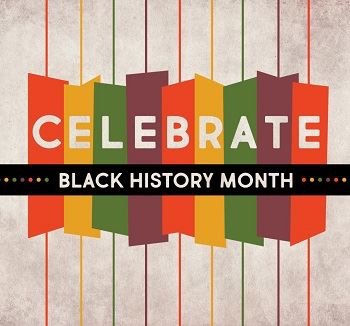Two Massachusetts Court Cases Helped Set The Precedent For Abolition Of Slavery

Photo: amherstma.gov
Every year during the month of February, we celebrate Black history in the U.S., but how much thought do any of us give to localized Black history? Well, that’s exactly what I focused on this year for Black History Month.
Juneteenth became an official state holiday here in Massachusetts in 2020. It has been a holiday celebrated by Black people since 1866, when it was known as “Emancipation Day.” A year earlier, on June 19th in Galveston, Texas, General Gordon Granger had declared that enslaved people in Texas were now officially free. Other states had already begun to free enslaved people by then. The Emancipation Proclamation had been in existence for about two and a half years, and slavery had been abolished for just shy of 85 years in the Commonwealth of Massachusetts, where the killing of a mixed, Black and Wampanoag man named Crispus Attucks had sparked the Revolutionary War, and a court case had set the precedent for the legal abolition of slavery.
An enslaved man of Ghanaian descent by the name of Quock Walker, and his family, had been purchased by a man named James Caldwell. Caldwell agreed to grant Quock his freedom at the age of 25, but died when Quock was 10 years old. Caldwell’s widow vowed to keep the promise to emancipate Quock. But in 1769, she married a man named Nathaniel Jennison, and then died three years later, leaving a 19-year-old Quock and his family to the ownership of Jennison, who had no plans of emancipating any of them. At the age of 28, Quock escaped and found work on a nearby farm owned by James Caldwell’s brothers, Seth and John. Jennison hunted him down, retrieved him and beat him savagely. Quock took Jennison to court.
On June 12 ,1781, in the Worcester County Court of Common Pleas, Jennison sued the Caldwell brothers for harboring his slave, while Quock sued Jennison for assault and battery. Jennison won his case and was awarded 25 pounds. Quock’s attorneys argued that slavery, as a general rule, violated aspects of the newly adopted Massachusetts Constitution. Quock won. He was awarded 50 pounds and the jury declared him to be a free man.
In September of 1781, the state’s attorney general charged Jennison with assault and battery as well as wrongful imprisonment. The case of Commonwealth v. Jennison was decided on July 8, 1783 with a guilty verdict. Chief Justice William Cushing cited the Massachusetts Constitution: “All men were born free and equal.”
Meanwhile, in Sheffield, an enslaved woman named Elizabeth Freeman (Bett), owned by John and Hannah Ashley, overheard Mr. Ashley (who was a lawyer) discussing the Massachusetts Constitution with some of his friends and colleagues. One phrase stuck with her and planted a seed. “All men are born free and equal.” She retained an attorney, Theodore Sedgwick, who teamed up with attorney and founder of the Litchfield Law School in Litchfield, Connecticut, Tapping Reeve. Another enslaved person owned by Mr. and Mrs. Ashley, known as Brom, was added to the case. In August of 1781 the case of Brom and Bett v. Ashley was heard by the Great Barrington Court of County Pleas. Arguing on the basis of the concept of freedom and equality as espoused in the Massachusetts Constitution, her case was won and she became the first Black woman set free in the Commonwealth.
While neither case directly outlawed the “peculiar institution” of slavery in Massachusetts, they did set a precedent that removed legal support and protection for slave ownership in the Commonwealth. By 1790, no enslaved person in Massachusetts appeared on the Federal Census. This did not end the tradition of servitude, but it did establish the idea that enslaved Africans were indeed human beings and, as such, were entitled to freedom and equality…although the latter would take far longer to realize.
Ben Herrington is Chair of the Amherst Human Rights Commission and a member of the Amherst School Committee
